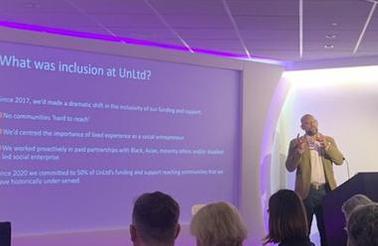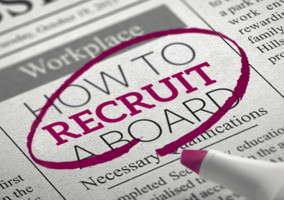People from Black, Asian and minority ethnic (BAME) backgrounds who work in the charity sector still face racism, according to Mark Norbury, chief executive of UnLtd.
Norbury was speaking last week at Civil Society Media’s Trustee Exchange conference where he shared UnLtd’s journey to address its failings when it comes to institutional racism.
He said: “Life is still profoundly unfair for Black, Asian [and] minority ethnic colleagues throughout the sector. We have to proactively, consciously and robustly be anti-racist. It’s not good enough to not be racist. We have to be anti-racist.”
A journey to anti-racism
Norbury said that 2017 was a pivotal year for UnLtd, which finds, funds and supports social entrepreneurs.
“We evaluated our support offer and we realised that it was riddled with unconscious bias. The format, length and the rigour of the application forms distinctly advantaged people with university education, from middle class [and] who didn’t have access issues.”
Likewise, panel interviews and assessment processes “favoured those with structured lives who didn’t have access barriers,” he added.
To address its failings UnLtd redesigned its support offer, with a focus on lived experience.
However, Norbury admitted that the approach was not enough to change things around and turn the fund into a more inclusive organisation.
He said: “It was a pretty partial take and we fooled ourselves thinking that we’re making good progress. Because if you’re just taking one bit of what you do, even if it’s been at the beating heart of the organisation, which our support offer is, you don’t address the underlying culture structure systems of the organisation.”
Racial justice at the heart of levelling up
The height of the Black Lives Matter movement in 2020 prompted UnLtd to self-reflect.
Norbury said: “We’re gearing up for a major Covid-19 recovery fund and we wanted to make a strong visible commitment to social justice. So we committed without knowing if we could do it to have 50% of our grantees in Black, Asian minority ethnic and or disabled social entrepreneurs.”
As a result, the fund distributed grants to over 600 social enterprises in three months, with 56% of those going to BAME.
To further transform its culture and create an organisation that embodies diversity, equity and inclusion, UnLtd commissioned an in-depth equity audit. It found that Black colleagues were frequently experiencing “microaggressions” and uncovered bias and privilege among other things.
“We know that the UK is institutionally racist. We know that barriers and bias are prominent throughout every sector and organisation in the UK. UnLtd is part of that fabric of society. It’s inevitable,” Norbury said.
In light of the findings, UnLtd committed to being transparent and accountable to its staff as well as building skills, mindsets and inclusive learning.
Challenging mindsets
Norbury said that being “fully equitable and inclusive” is the best way to maximise impact, adding that “cultural change” is crucial.
“We like to think that we’re on the side of the angels, we’re doing the good work. But there’s a problem if all the angels are white [and] straight […].
“We have to challenge some of those things that filtered into our consciousness for decades without us noticing. It’s key for all of us to understand that our own personal behaviour is one part of how we need to address this. It’s much more about how we change society and our responsibility in that.”
Related articles











